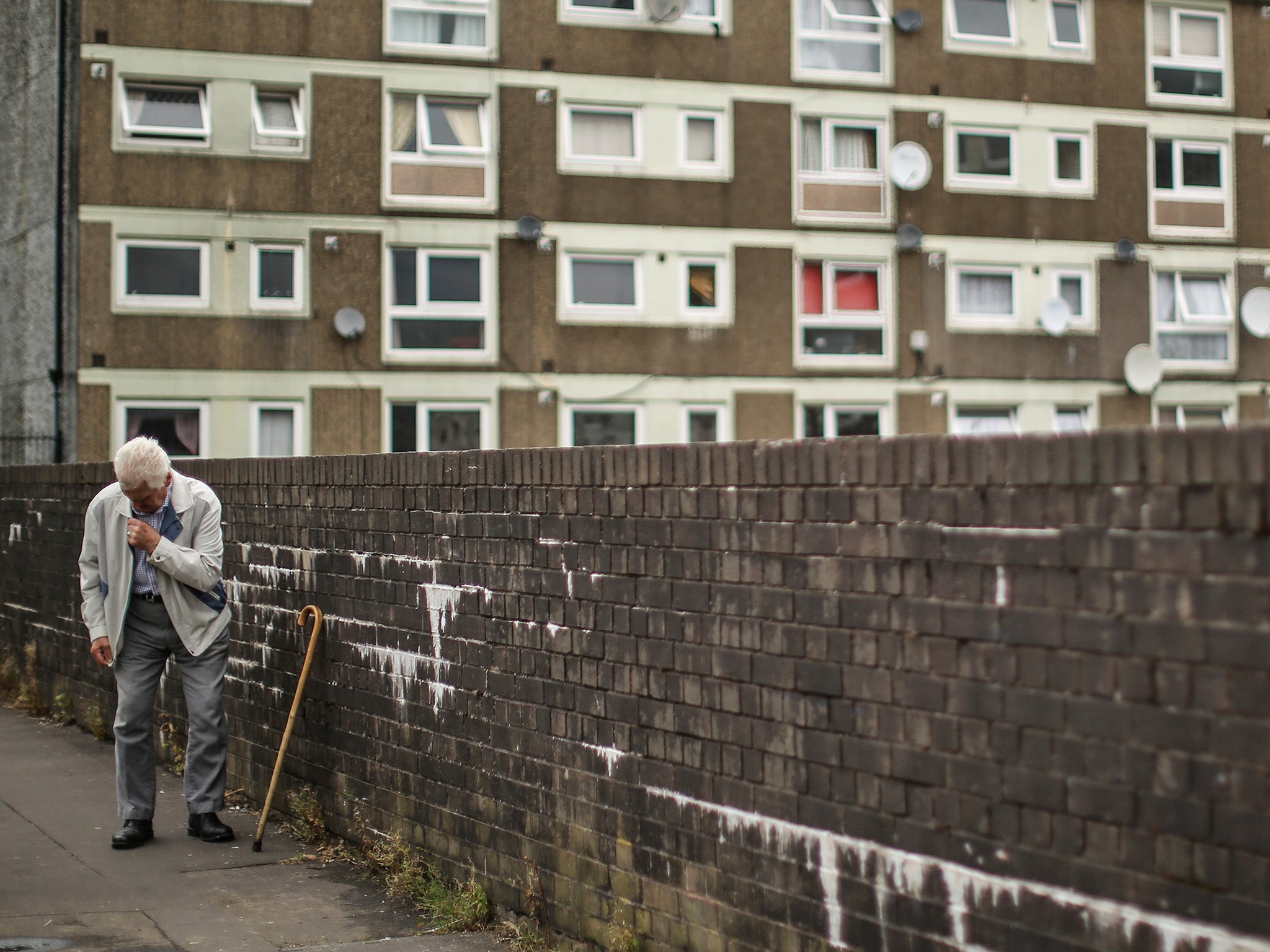Losing your life savings could increase risk of early death, study finds
One in four adults studied experienced a catastrophic 'wealth shock' and researchers warn it could have serious health risks

Your support helps us to tell the story
From reproductive rights to climate change to Big Tech, The Independent is on the ground when the story is developing. Whether it's investigating the financials of Elon Musk's pro-Trump PAC or producing our latest documentary, 'The A Word', which shines a light on the American women fighting for reproductive rights, we know how important it is to parse out the facts from the messaging.
At such a critical moment in US history, we need reporters on the ground. Your donation allows us to keep sending journalists to speak to both sides of the story.
The Independent is trusted by Americans across the entire political spectrum. And unlike many other quality news outlets, we choose not to lock Americans out of our reporting and analysis with paywalls. We believe quality journalism should be available to everyone, paid for by those who can afford it.
Your support makes all the difference.Losing your retirement nest egg after middle age takes a major toll on your health and could increase your chances of dying prematurely by as much as 50 per cent, a study has found.
Researchers investigating the long-term health impacts on people who lost the bulk of their life-savings unexpectedly, dubbed “wealth shock”, found it had a heavy mental health toll.
Worryingly, the US team found this sort of catastrophic financial loss, classed as losing more than 75 per cent of their assets in a two-year period, was far from rare with one in four people affected over the 20 year study.
While this was more common in times of economic upheaval – such as the global recession in 2007 – losses were prevalent at all wealth levels and could occur at any time, the authors said.
“It’s a very pervasive issue,” said lead author Dr Lindsay Pool, a research assistant professor of preventative medicine at Northwestern University, Chicago.
“It wasn’t just a few individuals but more than 25 per cent of Americans had a wealth shock over the 20 years of the study.”
Overall the study found the risk of dying from any cause, dubbed the hazard ratio (HR), after a wealth shock was 1.5 compared to a baseline of one for those whose savings were unaffected.
The study found losing your home caused a particularly large increase in the chances of dying prematurely, though there was still an increase for those who lost savings and kept their home.
Previous studies have shown rates of depression, suicide, substance abuse, and heart disease increase shortly after a financial loss but this is the first study to look at the long-term implications.
The authors suggested that the US health system was a major factor as well, as serious illness is likely to bankrupt the uninsured and for those without savings preventative health checks can be unaffordable.
More than 8,700 people aged 51 to 61 were followed from 1994 to 2014 for the study, published in the Journal of the American Medical Association (JAMA) today.
Of this group, which was picked to be representative of the wider US public, 2,430 experienced a catastrophic loss of savings during the period while 5,535 had positive finances throughout.
A further 749 participants were in “asset poverty”, having no home or savings, at the start of the trial and their outcomes were also followed up.
Among those who recorded a major financial catastrophe, the median loss was 92.4 per cent of their financial assets and a value of around $101,548 (£72,353).
Throughout the study period there were 2,823 deaths, of these 816 were in the group who experienced a wealth shock, and 1,617 from those with stable finances.
The researchers statistically controlled for other risk factors, such as pre-existing health conditions and ethnicity, to arrive at the 50 per cent increased risk chance of dying.
There were 380 deaths in the group who had no assets at the start of study.
“These people suffer a mental health toll because of the financial loss as well as pulling back from medical care because they can’t afford it,” Dr Pool added.
“The most surprising finding was that having wealth and losing it is almost as bad for your life expectancy as never having wealth.”
Independent academics said the findings were striking, particularly as many people were likely to have underestimated their lost finances.
“This study by Pool et al warns that many individuals in the United States who reach middle age are at risk of losing most of their wealth, a misfortune that may be associated with shortened life,” said Professor Alan Garber, Harvard University provost and a professor in health policy.
In an editorial also published in the JAMA he said the study couldn’t prove that the financial loss directly caused the early deaths, as the authors weren’t able to randomly assign who lost all their assets and measure the outcomes, but said that this mechanism is “entirely plausible”.
He added “the approximately 50 per cent relative increase in mortality” is similar to the risk of dying in someone newly diagnosed with coronary heart disease.
Join our commenting forum
Join thought-provoking conversations, follow other Independent readers and see their replies
Comments